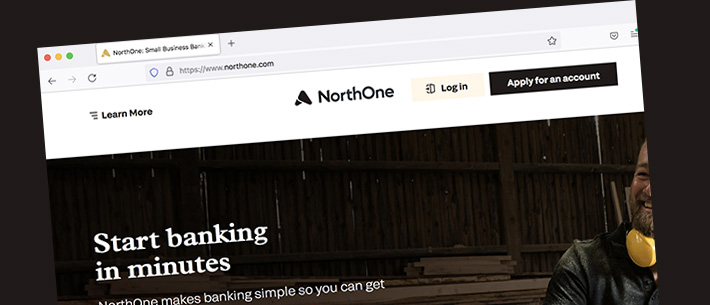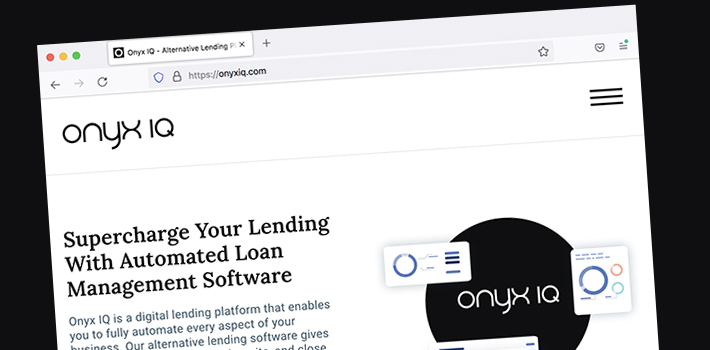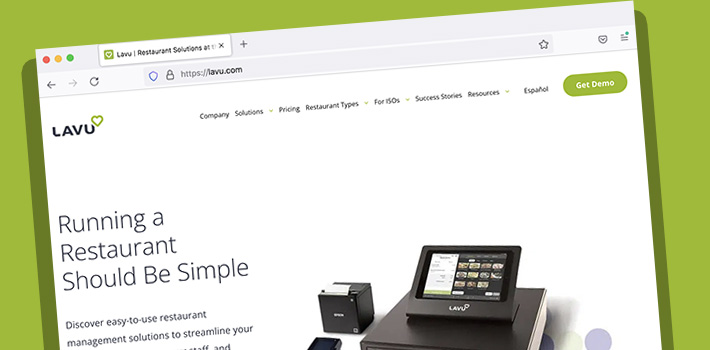Fintech
NorthOne is Building Finance Departments For Small Businesses
October 20, 2022 NorthOne recently received $67 million in Series B funding from investors including former NFL star Drew Brees, Battery Ventures, Don Griffith, Ferst Capital Partners, FinTLV, Operator Stack, Redpoint Ventures, Tencent, Tom Williams, and Next Play Capital.
NorthOne recently received $67 million in Series B funding from investors including former NFL star Drew Brees, Battery Ventures, Don Griffith, Ferst Capital Partners, FinTLV, Operator Stack, Redpoint Ventures, Tencent, Tom Williams, and Next Play Capital.
Founded in 2016 by CEO Eytan Bensoussan and COO Justin Adler, NorthOne was designed for small business owners to build a finance department without the complexity of a bank. Coming from an entrepreneurial background, Bensoussan noticed that being a great owner does not make one a great financial manager. With the idea of building good banking and accounting for businesses and combined with Adler’s professional career in the tech space, NorthOne was born.
“We want to build finance departments out of every small business in America, bring the sophistication of what so many of the biggest companies around us enjoy but bring it to the small businesses that could never dream of being able to build a finance department for their small business,” said Bensoussan. “I think that’s the gap that we’re closing.”
Through NorthOne, customers not only get access to a bank account but also technology that organizes and manages other business functions. Business owners can pay invoices, do payroll, and send ACHs or wires in seconds, for example, all while integrating with their existing accounting, e-commerce, and POS software.
Conducting all this from a desk or mobile device without having to go to a bank is a service directed at small businesses with fewer than 10 employees, that are family owned, and are managed locally in the community.
“…here we are talking to a lot of these business owners explaining that there’s so much more that a bank account could offer if it was designed to be more than just a store of money,” said Bensoussan. “I think that’s this eye-opening moment when we talk to them, and we get a lot of folks saying I never even thought that it could go that far. And it’s an exciting moment for us as well.”
Onyx IQ Customers Can Now Use Actum Processing
October 18, 2022 Onyx IQ recently announced a new partnership with Actum Processing. Customers of Onyx IQ, a loan & MCA management company founded in 2017, will now be able to process their ACH payments using Actum.
Onyx IQ recently announced a new partnership with Actum Processing. Customers of Onyx IQ, a loan & MCA management company founded in 2017, will now be able to process their ACH payments using Actum.
“The lending space happens to be one of our most productive niches, being that funders and brokers need a means to collect payments and fund deals,” said Vincent Lipari, President of Actum, “the ACH network is that vehicle and Actum takes pride in delivering reliable services for our clients.”
Onyx IQ, described as a “digital lending platform that enables you to fully automate every aspect of your business” and led by smb finance veteran Jay Keller, launched its software this past July.
“It’s a workflow solution with all the appropriate integrations and all of the reporting that the MCA and alternative lending spaces might need,” said Elizabeth Schuerman, VP of Sales at Onyx IQ.
The arrangement between the two companies is not mutually exclusive. Onyx IQ customers can use other processors if they so choose and Actum does ACH processing in many spaces outside of lending including the shipping space, fantasy sports, gaming, and more, but the collaboration is significant for another reason; Both individuals, Lipari of Actum and Keller of Onyx IQ, have known each other for roughly 11 years and ironically had never done any business together. When the opportunity presented itself, their non-business relationship grew into this newfound partnership.
“Integrations like the one we have with Onyx IQ help Actum attract more quality lenders, which is good for growth in transactions and revenues,” Lipari said.
Overall, the deal “allows net new customers to start funding in as little as 2-4 weeks, processing ACH payments and paying commissions on the rails that already exist between the two platforms,” an official statement says.
Rapid Finance Has Evolved Into a Three-Piece Business
October 12, 2022 Historically, Rapid Finance has been a lender, but over the last few years the company has expanded into other areas including portfolio servicing and technology. It’s a three-piece business, one that now includes a new wholly owned subsidiary, Thrive.
Historically, Rapid Finance has been a lender, but over the last few years the company has expanded into other areas including portfolio servicing and technology. It’s a three-piece business, one that now includes a new wholly owned subsidiary, Thrive.
Thrive is described as an end-to-end digital lending platform that can be used by banks, credit unions, or other organizations to offer small business loans faster and easier to their customers.
Kunal Sehgal, co-founder and CEO at Thrive, said that Thrive’s technology can handle everything “from the application intake, to actual data collation and aggregation, to underwriting to decisioning, to origination to closing, and then servicing as well.”
The product gives Rapid a unique tool in its arsenal, given the company’s background. Will Tumulty, CEO at Rapid Finance, explained that Thrive’s technology will be greatly enhanced by Rapid’s own experience in the lending business.
“If you want to do a partnership with Rapid [through Thrive], you’re not just signing up for software,” Tumulty told deBanked. “You can get software, you can get potentially balance sheet access, you get expertise in servicing and credit management that Rapid has developed over more than 15 years in small business lending. And we think that’s a big difference for companies that are looking for a partner to help them get into the small business lending space.”
The acquisition was announced on October 3rd at American Banker’s Small Business Banking conference and is part of Rapid’s recent corporate rebrand and restructuring, which includes a new logo and website.
Lavu Adds MCA Product Through Partnership With Parafin
October 7, 2022 It’s not just DoorDash that Parafin has partnered up with to provide MCA funding. Last week, the restaurant software company Lavu launched Lavu Capital to help restaurants owners access capital.
It’s not just DoorDash that Parafin has partnered up with to provide MCA funding. Last week, the restaurant software company Lavu launched Lavu Capital to help restaurants owners access capital.
“We are a restaurant software company that focuses on small and medium restaurants,” said Saleem S. Khatri, CEO of Lavu. “Think of your favorite restaurants that have one or two locations that are really really popular, that are ingrained in the community. We do everything from point of sale to online ordering, payment processing, and anything a restaurant would need to start and grow their business.”
Khatri said that one thing they noticed is that these restaurants have a fundamentally hard time getting loans and that led them to connect with Parafin. Parafin’s product is an advance on future sales, not a loan, and their offerings have been simply integrated into Lavu’s technology. Parafin automatically generates an offer for restaurant owners that they can see in their Lavu dashboard.
“…it’s just really beautifully designed,” said Khatri. “It basically says, ‘Hey, you have an offer to borrow up to $5,000. Do you want it yes or no?’ And you just click ‘yes’ and you’re good to go, the money deposits straight into your bank account, and then you have a repayment schedule. And it just pulls it directly from your bank account according to that repayment schedule.”
Khatri says they haven’t really begun to market the product yet and they’ve just started off with a limited base of customers but that the plan is to roll it out to all their customers around the US. They’d even do it with their customers outside of the US if they could, but the tech is not set up to do that just yet.
“This is going to be a feature and an offering that really really benefits our customers because it gets to the heart of what they need, which is they’re in constant need of liquidity, they’re in constant need of kind of tools to run their business better,” Khatri said. “And it just really fits our portfolio of products that we offer to these customers. So the reception has been awesome.”
This New Small Business Lending Tech Started in New Zealand
October 3, 2022 Dave Lewis, CEO at Ranqx, co-founded his company in 2015 in New Zealand. With a plan to help small businesses, accountants, and bankers all understand the financial performance of a business, the company eventually realized that such information could be used to improve the archaic small business lending process with banks.
Dave Lewis, CEO at Ranqx, co-founded his company in 2015 in New Zealand. With a plan to help small businesses, accountants, and bankers all understand the financial performance of a business, the company eventually realized that such information could be used to improve the archaic small business lending process with banks.
“The long story short is we pivoted into small business lending because we saw that banks and credit unions were broken and couldn’t efficiently lend to small businesses,” said Lewis, “and we think there’s a huge opportunity to change that going forward.”
At the time, Ranqx was focused on its own domestic market, a nation with approximately 5 million people. It was when Covid started that the company’s technology was finally understood. In 2020, for example, Lewis received a call from the CEO of Kiwibank, saying, “Look Dave I think every CEO of every bank in the world has just figured out that it’s not a good idea to have small businesses visit a branch to fill out forms for a loan because we’re in a pandemic.”
Suddenly, Ranqx became the technology behind Kiwibank’s Fast Capital product, opening the door to a lightning fast online loan application process.
“A small business can apply for working capital in under two minutes. And they’ve got a decision within three minutes of that application,” said Lewis. “Within five minutes they know whether they’re going to be funded by Kiwibank or not.”
More recently, Ranqx is expanding into North America where it sees similar opportunities to improve the loan application process. Though the target customer is still banks, the company is open to working with online lenders, which Lewis thinks can benefit from the tech as well.
“We see a lot of portals that happen in the online lending space, but we don’t see a great use of real time data of APIs, of auto decisioning,” said Lewis, “which we’ll see there are a lot of manual processes that go in there, a lot of document uploading, and a lot of, still people-time required to underwrite and manually spread the financials to be able to get a yes or no decision.”
Ranqx has also recently appointed Ex-JPMorgan Chase CIO and Treasurer John Horner as its new chairman and formed a new partnership with Visa.
“I think the key thing that I would want [the] audience to be aware of is just the alternative data sets that are now available that can be automatedly analyzed and calculated and used within an underwriting decision,” said Lewis. “And the ability to ingest that data from companies like us in an orchestrated way, is something that we can really help accelerate. At the end of the day, it doesn’t matter whether you’re a bank or an online lender, the key fundamentals are, ‘who am I listening to and how likely am I going to get repaid?’”
Has That Doc Been Tampered With? Ocrolus Will Detect it
September 20, 2022 Building off its original technology, Ocrolus has added a new fraud detection solution called Detect.
Building off its original technology, Ocrolus has added a new fraud detection solution called Detect.
“Detect uncovers document fraud and provides high-quality, decision-ready data that helps lenders minimize risk and prevent unnecessary losses,” said David Snitkof, Head of Analytics at Ocrolus. “With Detect, we’re able to show lenders when editing software was used, and if things like account number, account holder, dollar amounts, and more have been edited on a document.”
This analysis can be performed through the Ocrolus dashboard or API so that can lenders can review it and make a qualified decision. Tampered areas of a document are highlighted in red.
“In some cases, we’re able to uncover the original document and show it side-by-side with the tampered document,” said Snitkof. “This paints a vivid picture of how fraud is taking place.”
Snitkof believes Detect will be an asset to the company as they have already seen tremendous impact with their customers.
“For a leading small business lender, we were able to identify file tampering on 21% of confirmed fraud losses. Detect would have saved the lender over $1.2 million. That’s a significant return on investment,” said Snitkof.
To be clear, the company had previously provided customers with a fraud detection solution and this is merely a significant update.
“Fraudsters are constantly innovating and developing new techniques to misrepresent the truth and steal lenders’ capital. Even when they manipulate a document, it is often a high-quality forgery, where there would be no way for a human reviewer to identify any inconsistency,” said Snitkof.
Recent occurrences and the increase in fraud have ignited Ocrolus to improve their tools.
“People often take others’ financial documents, modify the information, and pass it off as their own. Sometimes, a fraudster will create cash out of thin air – for instance adding digits to a transaction amount – and then also change all the other numbers on the statement so that all the numbers reconcile perfectly,” said Snitkof.
What The Collaboration Between Helix by Q2 and Ubiquity Means
August 31, 2022 With the rising phenomenon of embedded finance springing across the industry, Helix by Q2 and Ubiquity have partnered together to help non-bank companies embed financial services inside of their existing offerings. Headquartered in Austin, TX, Helix by Q2 gives fintechs and brands the building blocks of banking such as accounts, cards, payments, data and more. New York-based Ubiquity, meanwhile, provides end-to-end solutions for customer experience management, back-office operations, and business transformation.
With the rising phenomenon of embedded finance springing across the industry, Helix by Q2 and Ubiquity have partnered together to help non-bank companies embed financial services inside of their existing offerings. Headquartered in Austin, TX, Helix by Q2 gives fintechs and brands the building blocks of banking such as accounts, cards, payments, data and more. New York-based Ubiquity, meanwhile, provides end-to-end solutions for customer experience management, back-office operations, and business transformation.
“We did a ton of diligence looking at all of the different players in the space and we felt that Ubiquity was the best partner for us and also for our partner prospects to help them build personalized managed services at scale so that they can focus on launching an excellent and unique product,” said Ahon Sarkar, General Manager of Helix by Q2.
Sarkar expressed the importance of personalization when customers are seeking assistance so that (1) they can be directed to the right person for their matter and (2) so they can make the overall customer experience beneficial to the services they’re seeking. The “cookie-cutter” customer service experience, as he described it, doesn’t always mesh with a brand’s identity. Ubiquity, however, goes the extra mile in Helix’s view in maintaining that brand pesonalization.
Matt Agronin, Chief Marketing Officer at Ubiquity, said that when it comes to dealing with financial products in particular, it becomes incredibly personal, that there’s nothing more personal than that.
“[…] when things seem too complex, or you’re getting piecemeal answers in your journey, when you’re a customer and you’re seeking to find answers, technology solutions that are robust, clear and unified, and a customer service organization that understands and empathizes with the customer’s situation are what are going to yield best,” Agronin said.
The collaboration is supposed to make for a smoother experience for customers to be led in the right financial direction when adding embedded finance as a service to what they already have.
“We’re taking the elements of banking and making it so that people can use those building blocks of finance, to create unique products, to create unique experiences,” said Sarkar, “and embedded finance is kind of what our customers are doing with it. They’re taking the banking products and they’re embedding it inside of their existing business in order to make things unique that you couldn’t make without being that type of business.”
With the strategy of providing better customer service, Agronin agrees that having Helix as a partner allows both companies to manage customers and grow in relationships with brands.
“At Ubiquity, we’re here to help brands scale fearlessly,” Agronin said. “So that means providing world class and dedicated CX brand ambassadors and seasoned banking operational professionals to help these fintechs grow their business and their customers. So, we’re here to help them in the background, take away parts of the business that they may not be able to handle right now given their size, or parts of the business that are not their core skill set so they are able to focus on their actual business and the product roadmap and we can help manage the customer.”
Funding Circle’s Partnership With Farm Bureau Bank
August 26, 2022 “I think the main thing is that Funding Circle for a long time’s been working with banks and the way we work with Farm Bureau Bank is no different, which is we’re out here to try and put money into the pockets of small businesses,” said Angus Sanders, Chief Revenue Officer & VP Product at Funding Circle, “and Farm Bureau Bank is going to help us to do that.”
“I think the main thing is that Funding Circle for a long time’s been working with banks and the way we work with Farm Bureau Bank is no different, which is we’re out here to try and put money into the pockets of small businesses,” said Angus Sanders, Chief Revenue Officer & VP Product at Funding Circle, “and Farm Bureau Bank is going to help us to do that.”
According to Sanders, Funding Circle and Farm Bureau Bank have joined forces in delivering quality loans to small business owners. This partnership allows Farm Bureau Bank to purchase loans through Funding Circle in support of the small business community. They even extend a hand to small businesses in rural communities who may not be close to a bank to receive the services they need to grow their business.
“For those customers who are in rural areas, and perhaps can’t travel so easily to a branch, working with Funding Circle and Farm Bureau Bank, they’re able to get a loan much more easily and quickly, typical turnaround, 24 hours to offer and 48 hours to loan, which is very different to your typical small business loan. So, I say those are the primary areas where this helps small businesses,” said Sanders.
With the increase of banks wanting to do more small business lending, sometimes they struggle with finding businesses or being able to process the loans, Sanders explained. Working with organizations like Funding Circle, Farm Bureau can now provide capital faster and fund more small businesses.
During the pre and post-pandemic era, Sanders said he believes that fintech has evolved and will only continue to do so. And with fintech on the rise, Sanders said that other products like Lending as a Service, will continue to be a key growth area in the coming months.
“Farm Bureau Bank is starting with financing and we hope someday they’ll refer deals to us, […] but what this really shows is the deepening focus on partnerships between fintechs and banks, and particularly this emergent Lending as a Service product, which within Funding Circle sort of takes the lead on but lots of other fintechs go into and I think you’ll see, you’ll see more about that in the coming months,” said Sanders.





























